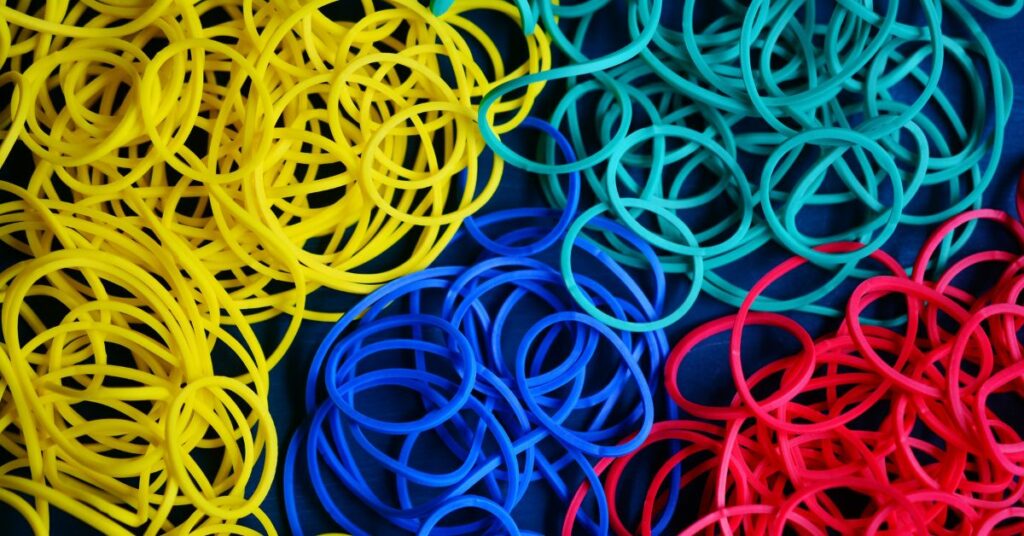The Food and Drug Administration (FDA) plays a vital role in ensuring the safety and efficacy of various products, including silicone rubber products. Compliance with FDA regulations is crucial for manufacturers and suppliers in this industry.
We will explore the complexities of FDA compliance for silicone rubber products, shedding light on the requirements, challenges, and best practices businesses must navigate. So let's get started!
The FDA (Food and Drug Administration) has implemented stringent guidelines to regulate the use of rubber in products that have contact with food, medical devices, and pharmaceuticals. These regulations ensure the safety and quality of rubber materials used in the manufacturing process.
They also prevent contamination or compromise of the substances they come into contact with. The FDA requires rigorous testing of rubber materials to assess their safety and compliance with industry standards.
These tests evaluate factors such as the composition of the rubber, its chemical properties, and the potential leaching or migration of harmful substances. The purpose is to verify that the rubber materials do not risk human health or compromise the food.
Additionally, the FDA imposes regular inspections and audits to maintain the compliance of rubber material manufacturers with the necessary standards. These inspections and audits help ensure ongoing adherence to safety guidelines and enable prompt identification and resolution of any potential issues.
The usage of silicon rubber has been increasing every day. The food industry has a wide range of applications for silicone rubber. Here are some examples:
Silicone baking mats, cake molds, muffin pans, spatulas, and kitchen utensils are ubiquitous cooking-related instruments.
Silicone bakeware is non-stick and flexible, and it can withstand high temperatures. These properties make it popular among bakers and chefs. The following video shows kitchenware manufacturing using silicon rubber:
Silicone food storage containers and lids are flexible, airtight, and durable. You can use them for storing both hot and cold food items.
Silicone rubber food storage containers are also microwave and dishwasher-safe. So you can cook food in them and wash them without any hassle.
Silicone gloves and grips are used in the food processing industry to handle hot or cold food items safely.
Silicone rubber is also used in conveyor belts and processing equipment due to its resistance to extreme temperatures and chemicals.
Gaskets, seals, and O-rings are standard products for beverage dispensing and bottling equipment. And silicone rubber is the material used to make these products. You will also see silicone tubing in beer and wine production for transferring liquids. This video shows a silicone seal ring for food containers:
The food packaging industry uses silicone rubber parchment paper to provide a non-stick surface and prevent food items from sticking to the packaging.
Silicone seals and gaskets are also very common in food packaging machinery. They ensure airtight and leak-proof seals.
If you want to use silicone rubber products, you have to use FDA-approved silicone rubber products. There are benefits of using FDA-compliant products. Here are the benefits:
FDA-compliant means safety. If you use FDA-approved rubber materials and molding processes, it makes sure that your products meet the safety standards and comply with FDA regulations.
It helps protect consumers and prevents potential legal issues. It is also beneficial to increase the reputation of your business.
FDA-approved rubber molding products are highly durable and can withstand harsh environments.
The rubber materials are resistant to wear, tear, chemicals, and extreme temperatures and ensure longevity and reliability in various industries.
Silicone rubber products that are FDA compliant are adaptable, and they can create products in different shapes and sizes to meet specific requirements.
Whether you need seals, diaphragms, or other custom components, the versatility of rubber molding allows for producing a wide range of products.
There are different types of silicone rubber materials; all are FDA-approved. Their purpose also varies. Here are different types of FDA-approved rubber molding materials:

Silicone is a synthetic elastomer with excellent durability, UV, and ozone resistance, and a wide temperature range.
Manufacturers make molds and bakeware products using silicone rubber due to its attractive color options. Silicone rubber is also resistant to extreme temperatures and chemicals and suitable for applications in the medical device and pharmaceutical industries.
Nitrile rubber is irreplaceable in the dairy farming industry and food processing plants. Production lines use nitrile rubber, a more cost-effective alternative to silicone, for specific applications in the confectionery industry.
Nitrile rubber provides good resistance to various substances and is suitable for non-extreme temperature environments.
EPDM rubber is a versatile material. They are resistant to weathering, ozone, and UV radiation. It has various applications in the food and beverage industry to produce seals and gaskets. EPDM rubber can give you reliable sealing performance while meeting FDA regulations.
Viton rubber is a high-performance material. They are trendy for their exceptional resistance to chemicals and extreme temperatures.
It has applications in industries like chemicals and aerospace, where seals and gaskets must withstand harsh environments. Viton rubber is suitable for use in FDA-regulated applications when chemical and temperature resistance are crucial.
Understanding FDA compliance for silicone rubber products is crucial for manufacturers and consumers. It ensures these products meet the safety and quality standards set by the FDA, thereby minimizing potential risks to the public.
Ultimately, prioritizing FDA compliance protects consumers' health and safety and contributes to the silicone rubber industry's overall reputation and success.